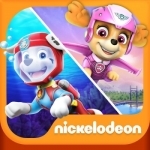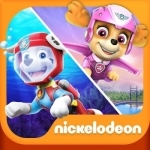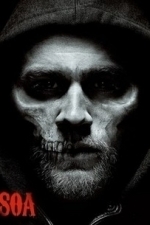
DJ Player Professional :: Music Mixing for Pro DJs
Music and Productivity
App
Get creative with the state of the art professional DJ technology. DJ Player Pro goes beyond the...

3D Animations + Emoji for MMS Text Messaging with 500,000+ Animated Emoticons for iPhone and iPad
Social Networking and Entertainment
App
The ORIGINAL and STILL THE BEST! No app has more animations or features! Don't be fooled by...

Virtual Families 2: Our Dream House
Games and Entertainment
App
*Now Downloaded 11 Million Times!! Well played, people!* *Whoa! You made us #1 in Simulation!...

Blaze and the Monster Machines - Racing Game
Education and Games
App
Get ready to race along with Nick Jr.’s Blaze and the Monster Machines in this fun truck racing...

PAW Patrol: Air & Sea
Education and Games
App
Pups Take Flight is now PAW Patrol Air and Sea Adventures! Kids take to the sky and sea with the PAW...

PAW Patrol: Air & Sea HD
Education and Games
App
Pups Take Flight is now PAW Patrol Air and Sea Adventures! Kids take to the sky and sea with the PAW...

Blaze and the Monster Machines - Racing Game HD
Education and Games
App
Get ready to race along with Nick Jr.’s Blaze and the Monster Machines in this fun truck racing...

Pinball HD: Classic Arcade, Zen + Space Games
Games and Sports
App
This unique table features pinball bumpers and targets, plus a color monitor where you can take on a...
Daniel Boyd (1066 KP) rated Sons of Anarchy - Season 1 in TV
Jul 21, 2017
Haley Mathiot (9 KP) rated Blind Sight in Books
Apr 27, 2018
Thomas is dragged (by the hand of God no less) into this insane mission to save these children from a cult, bring them to their mother who has been living undercover for three years, and expose the lies that the cult has been feeding to the world. But how is he going to keep his sanity when every time he sees the kids, he thinks about his own children and his wife who died at what he sees as his own hand? And what about his forsaken relationship with God?
I’m having a very hard time trying to think of words that describe Blind Sight. It is an incredible story about a terrible loss, but more than a loss of family—a loss of a relationship with Christ, but one that is rekindled to an absolute trust in His sovereignty. Blind Sight had my adrenalin racing through all 400-pages, yet parts of it were so peaceful and uplifting that I went back and read them again.
My favorite character was Micah, the little boy. He and Michelle were twins. He was so trusting, so brave, and so fragile. He couldn’t see, so he learned to rely completely on Michelle’s guidance, and had to learn to trust a man he’d never met before (Thomas). My heart ached for him through the story.
On that note, all the characters had some sort of major flaw that made them definite real people. My heart ached (almost physically) for each of them in a different way.
The writing was contemporary prose, easy to read, fluid, but simple. It wasn’t what made the book a 5-star book, but it didn’t take away from the overall enjoyment.
The narration alternated between several different view points, and left you hanging, making it a compelling page-turner. The viewpoints were not confusing, however, because it was all from third-person perspective. Also because each character was so real, so distinct, it was easy to get inside their heads.
Because of the different view points, there were some sections where I was reading what was going on during the cult’s worship service. It was amazing in a repulsive, nerve-wracking way that sent shivers of disgust down my spine. I hated the cult with a passion, and because of that I related to Justine, the mother, very well.
The ending was peculiar. Most books leave you with a satisfied smile on your face. This one, not so much. That satisfied smile comes after you’ve set it down and thought about it for a while—and it does stick with you. Pence doesn’t really “finish” the story in the sense that everything is wrapped up completely. You know what will happen in the future, and because of that he doesn’t have to spell it out for you. Once I sat back and thought about what God had in store for these characters and watched it play out in my head, I grinned. It’s wonderful!
Content: 100% Clean!
Recommendation: Anyone ages 10+ would enjoy this! It would be a wonderful read for a family to share, or for an adult looking for a good clean Christian-thriller, or a teenager with the weekend off of homework.

